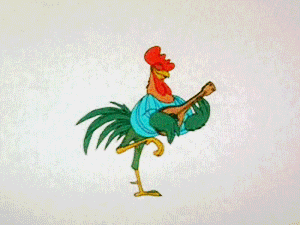http://www.nytimes.com/2005/12/14/arts/ ... SYowADRjOA
2 Musicians Facing Order to Surrender Instruments
Published: December 14, 2005
What would be a wrenching moment for any musician has arrived for two members of the Audubon Quartet: the loss of their instruments, casualties of a bitter legal feud with the member they cast out five years ago.
Today, a day after a federal bankruptcy court judge in Roanoake, Va., ruled that the instruments be surrendered, a trustee prepared an order for their seizure.
"I don't have words for this," said Clyde Shaw, the quartet's cellist. "The letters and notes I'm getting from around the country - the musicians in this country are shocked. They are floored by this decision. It upsets the world that we live in."
Mr. Shaw and his wife, Doris Lederer, the quartet's violist, will have until 4 p.m. on Dec. 23 to hand over their instruments once the order is entered, said the trustee, George A. McLean Jr.
Mr. McLean was appointed to liquidate the couple's holdings. They declared bankruptcy after losing a $611,000 judgment in a lawsuit brought by the quartet's first violinist, David Ehrlich, over his ouster in February 2000 after years of tension.
Mr. Ehrlich, who did not immediately return a phone message, has said that while he finds the loss of the instruments tragic, he needs the money for lawyers' fees. He said he was unfairly and summarily fired by three people who conspired against him, and that he had to sue to salvage his reputation.
"We'll just find a place to store them until we can have them appraised and begin the liquidation process," Mr. McLean said of the instruments. He said that they and several bows were valued at $166,000, and that he was also seeking the hand-over of annuities and accounts worth nearly $90,000.
Mr. Shaw's cello is an 1887 Eugenio Degani. "It has a beautiful voice," he said. "It matched what I wanted to say." But worse, he said, was losing his 1860 bow, a Nicolaus Kittel, which he said was cut from the same block of wood that produced a bow used by Jascha Heifetz. The viola is a 1915 Ferruccio Varagnolo with what Ms. Lederer said was a rare combination. "It's clear and dark and chocolaty," she said. "Usually, when you get a viola, it's one or the other."
The legal battle has been long and bitter. It has divided the music world and split loyalties in and around Blacksburg, Va., where the quartet moved in 1980 for a residency at Virginia Tech, which ended after the lawsuit.
The judgment against Mr. Shaw and Ms. Lederer came in Pennsylvania because the quartet was incorporated as a nonprofit there. The members are still holding out hope of an appeal there. But for that to happen, the bankruptcy judge, Ross Krumm, would have to lift a stay. Howard Beck, a lawyer for the couple, has made the request. At a hearing in bankruptcy court in Roanoke on Tuesday, Judge Krumm said he would hear arguments next month.
During Tuesday's session, according to an account in The Roanoke Times, Mr. Beck struggled to convince the judge that the couple needed the instruments to make a living - and that a $10,000 exemption from liquidation under bankruptcy law for "tools of the trade" was meaningless for a string player. Mr. Shaw said his bow alone was worth six or eight times that. But Judge Krumm said the liquidation was a "no-brainer," the newspaper said.
Once their instruments are handed over, Mr. Shaw and Ms. Lederer, who teach at Shenandoah University's conservatory in Winchester, Va., and continue to play in the Audubon with a different violinist, will have to find replacements. The university president, James A. Davis, said the university was willing to help, whether lending them instruments in its collection or acquiring new ones. He left open the possibility of helping buy their old instruments.
Ms. Lederer expressed the hope - a long shot, she said - that somehow the money could be found to buy their instruments back from the trustee. "It's awfully hard to raise that kind of money, especially since most of our friends are musicians," she said.
Mr. Shaw said he might borrow a cello. "Music," he said, "the judge can't order that out of my soul."







.gif)